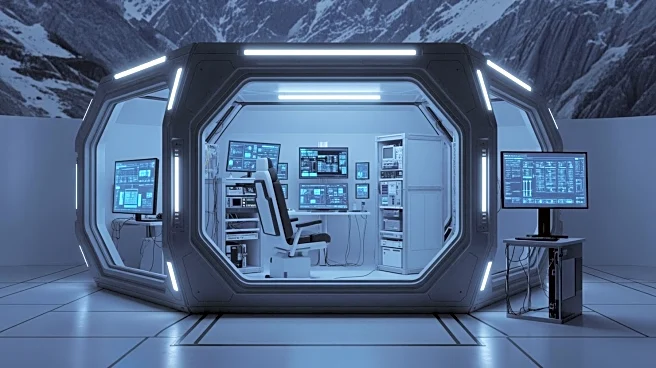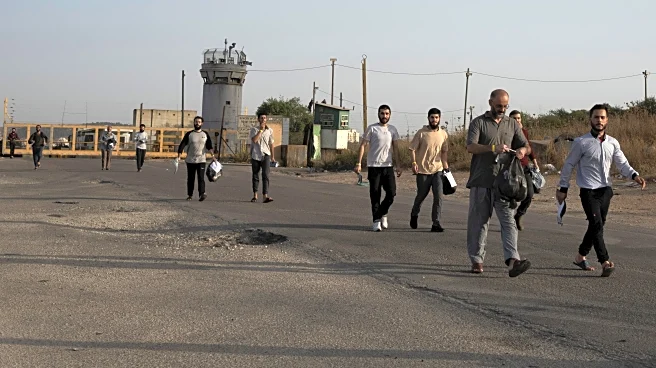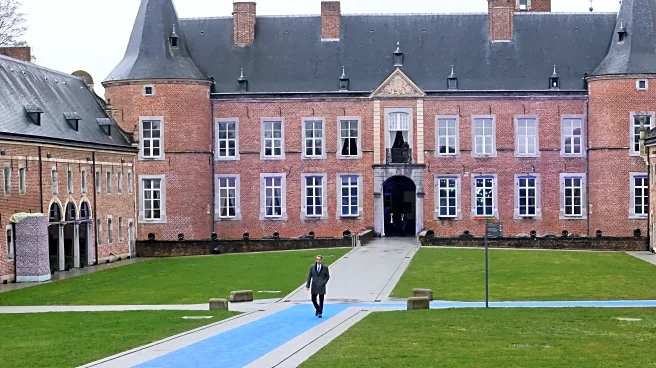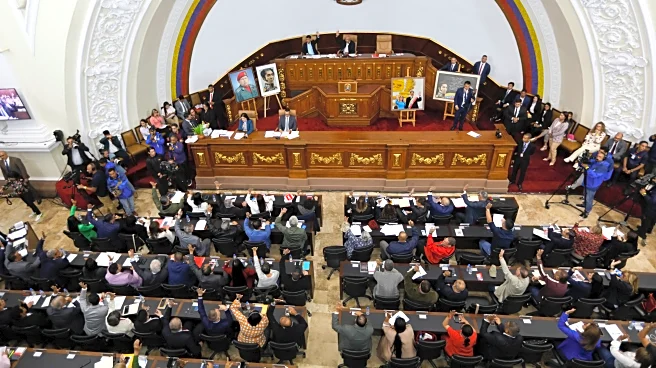What's Happening?
A group of international students participated in a simulated lunar mission inside the Gotthard military fortress in Ticino, Switzerland, as part of the Asclepios initiative. This student-led space program, named after the son of Apollo, aims to provide
hands-on experience in spaceflight research. The recent mission, Asclepios V, involved nine students who spent over two weeks in isolation, mimicking life on a Moon base. The initiative is led by Katie Mulry, an American aerospace engineering master's student, who has been involved since the second mission in 2021-22. The program offers a unique opportunity for students to engage in practical space mission simulations, enhancing their understanding of space exploration.
Why It's Important?
The Asclepios initiative is significant as it provides aspiring aerospace professionals with practical experience in space mission simulations, which is crucial for the development of future space exploration technologies. By simulating a lunar base, the program helps students understand the challenges and requirements of living and working in space environments. This experience is invaluable for students aiming to enter the space industry, as it bridges the gap between theoretical knowledge and real-world application. The initiative also fosters international collaboration among students, promoting a global approach to space exploration.
What's Next?
The Asclepios initiative plans to continue its annual missions, providing more students with the opportunity to participate in these unique simulations. As the program grows, it may attract more attention from space agencies and industry leaders, potentially leading to partnerships or sponsorships. The experience gained by participants could influence their future careers, contributing to advancements in space technology and exploration. Additionally, the initiative may inspire similar programs worldwide, further expanding opportunities for students interested in space research.
Beyond the Headlines
The Asclepios initiative highlights the importance of hands-on experience in education, particularly in fields like aerospace engineering. It also underscores the role of student-led projects in driving innovation and fostering a new generation of space explorers. The program's success could encourage educational institutions to invest more in experiential learning opportunities, recognizing their value in preparing students for complex, real-world challenges.



















